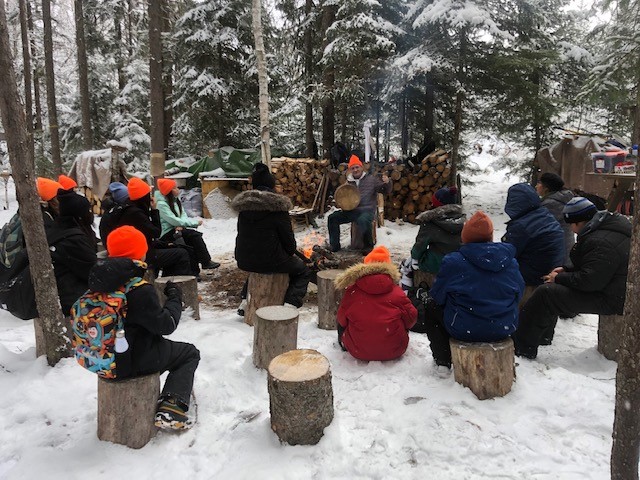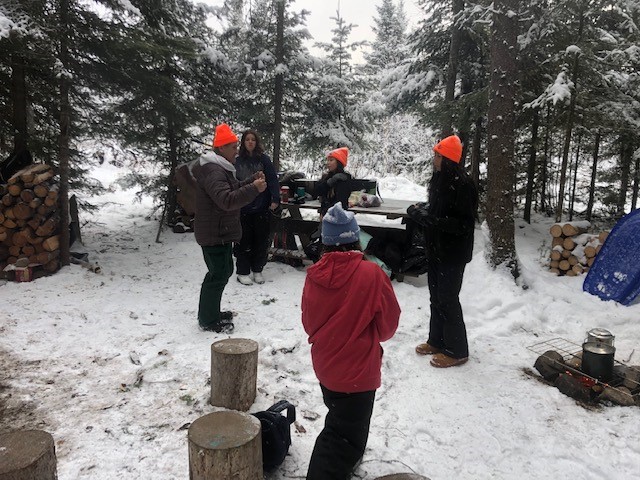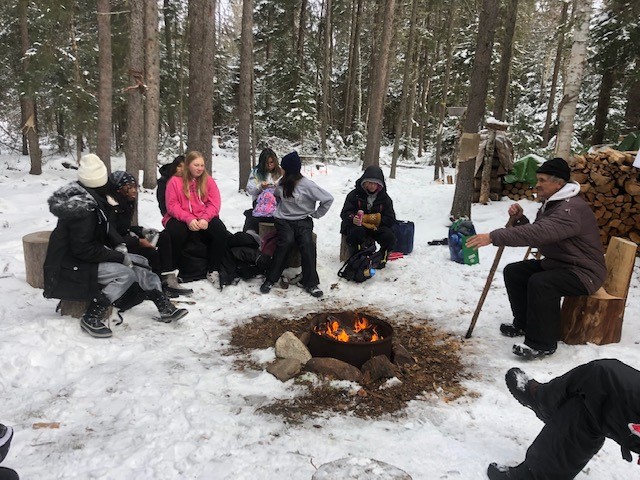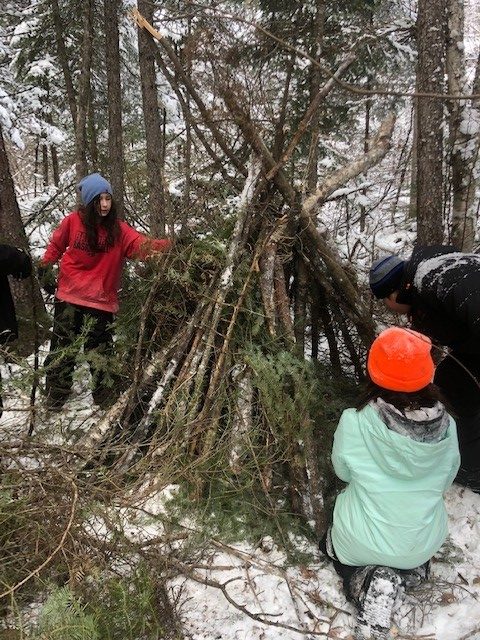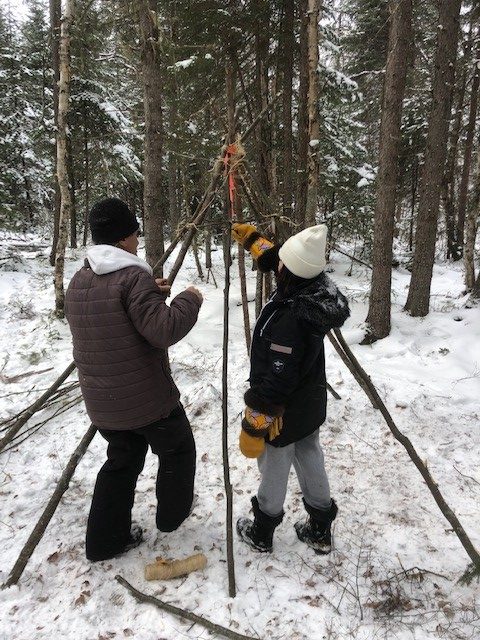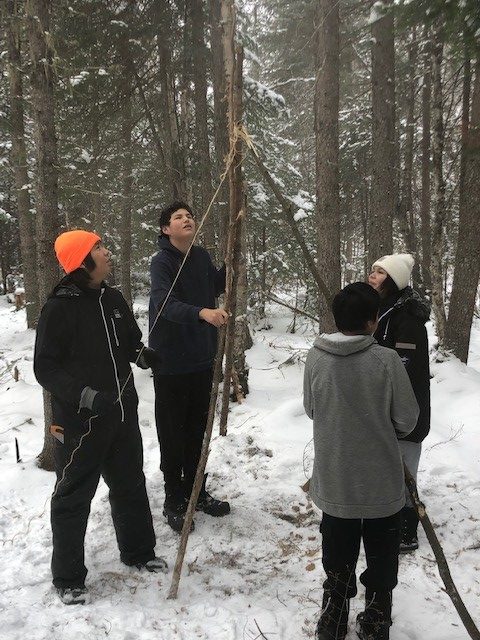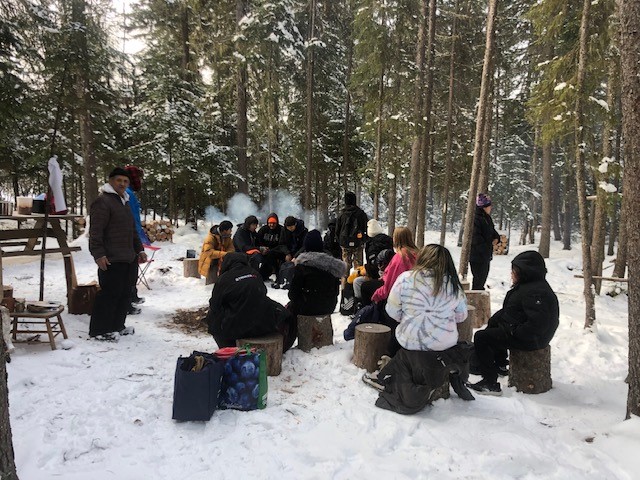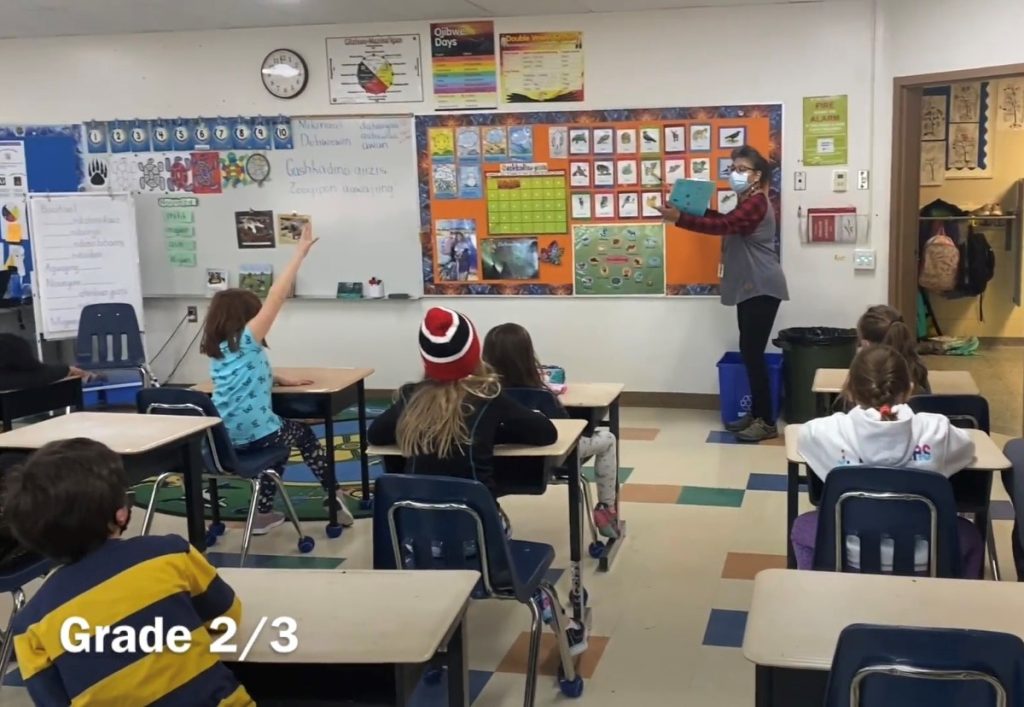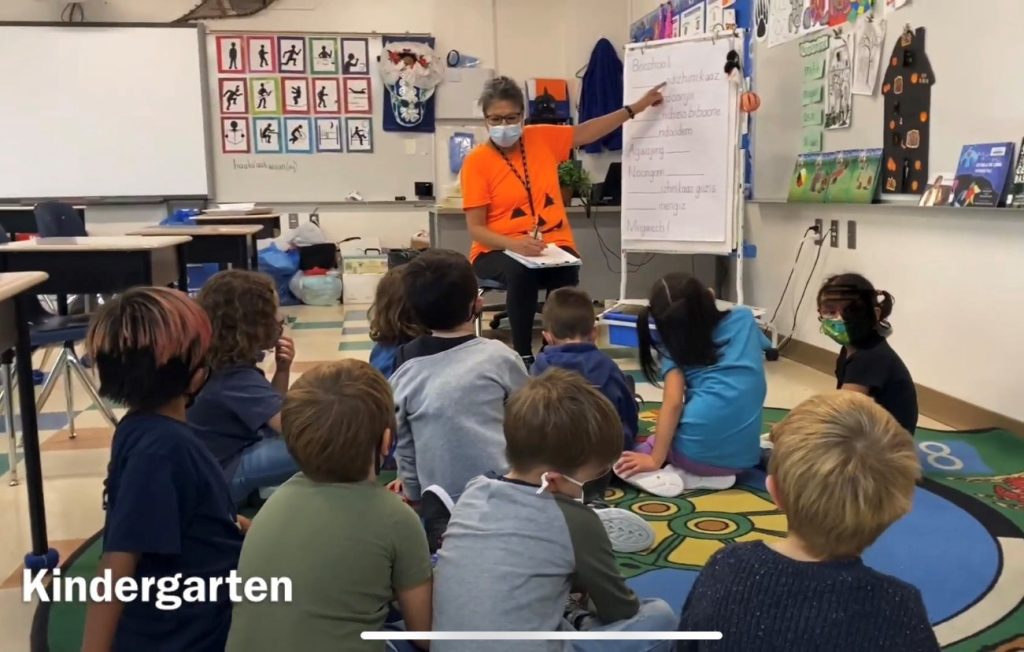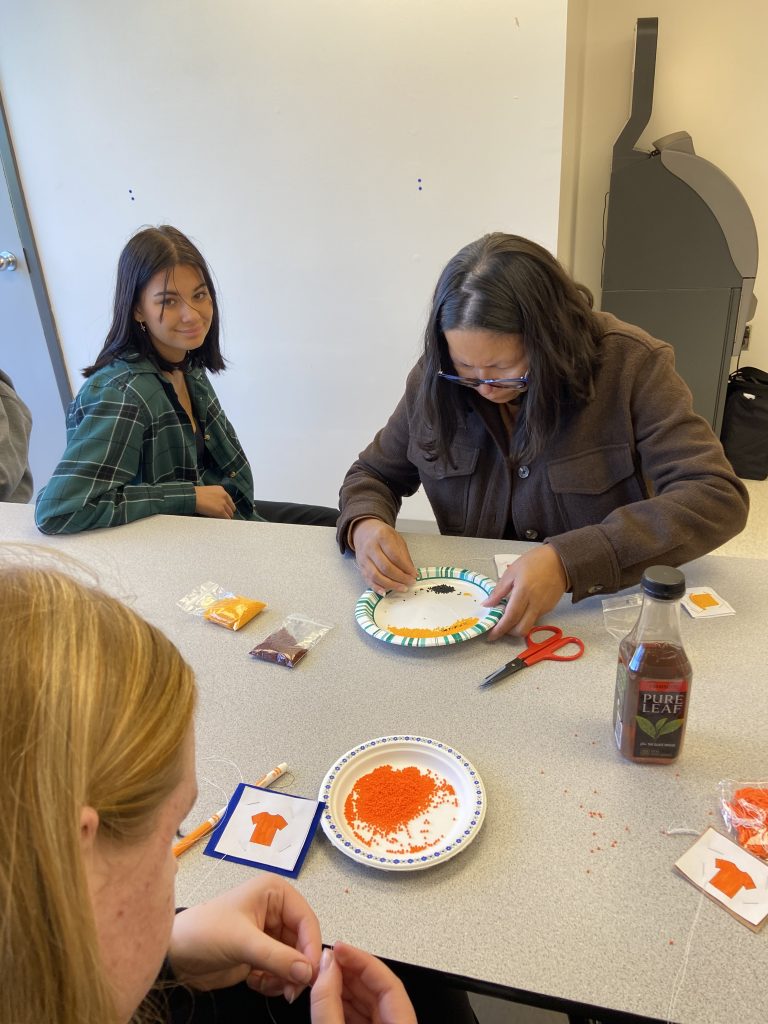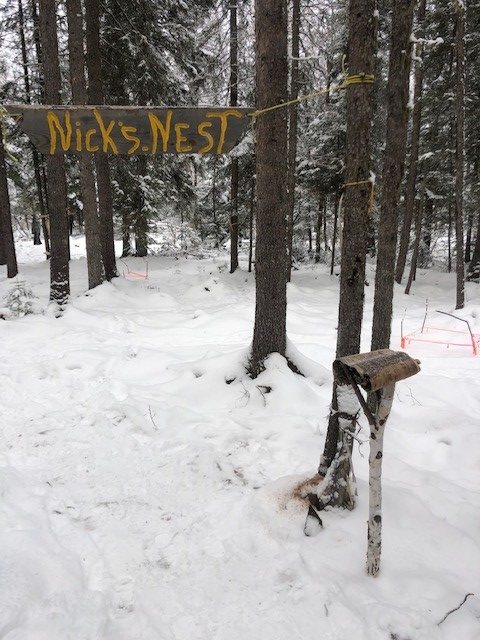Elders have a critical role in their communities and are the keepers and teachers of oral tradition and traditional cultural knowledge, making them an invaluable resource to schools. Through relationships with these Elders, students and staff learn the stories and history of the local people. Using the local dialect and teachings from our area makes teaching and learning especially relevant and engaging for our students. Seeing these leaders in the schools and learning from them give our First Nations students a feeling of identity and pride in that identity. Inviting an Elder into the classroom is a great way of developing relationships with a First Nations community member and not only benefits First Nations students but also helps non-First Nations children to develop a better understanding of First Nations culture and build relationships with First Nations people. Having Elders in the school helps to create a culturally-affirming school environment that helps to connect learning to the cultural background and language of our First Nations students.
Elders bring traditional teachings our students could not otherwise access, such as drumming, beading, traditional cooking or trapping. The gifts given to us by Elders include the experience of learning with them and listening to their stories. When a student can share learning with or from an Elder, it is memorable and works for teaching our students the greater lessons of First Nation, Métis and Inuit values and traditions and helps us take steps toward reconciliation.
Elders in Residence at Sioux Mountain Public School
Sioux Mountain Public School is fortunate to have Elder Nick Kowalow as the Elder in Residence four days per week. This year, intermediate classes are spending two days per week off-site at “Nick’s Nest,” a forested area Elder Nick uses for traditional teachings and ceremonies just a short distance north of Sioux Lookout. While out at Nick’s Nest, students learn more about who they are as individuals while building connections to each other and the land through hands-on activities, exploration, sharing circles and taking part in traditional and cultural teachings and practices. While at school, Elder Nick supports students and staff by sharing his knowledge and many gifts. He facilitates large and small group sharing circles, and many students look forward to these circles each week, often outside around the fire. Elder Nick is often sought out by students who struggle with day-to-day challenges and are looking for someone to talk to. He is always willing to listen and share his personal story to help others.
Elders in Residence at Red Lake-Madsen Public School
“It’s Wednesday!” shout the excited voices of the Spark students as they enter our classroom. For the last five years, the Spark classroom at Red Lake-Madsen Public School has partnered with the Indian Friendship Centre, particularly Diane Bennet, and attended Site 2 to build confidence, self-esteem, perseverance, teamwork, and resilience. In addition, through experiential learning activities such as making crafts, engaging with nature, and exposure to Indigenous culture, students are developing leadership, relationships, and respect for others.
An unintended benefit that has emerged is our relationship with “Elder Ed”, an Indigenous elder from the Lac Seul First Nation, and a regular feature on our Site 2 visits. This relationship has provided meaningful opportunities for reconciliation and understanding of Indigenous histories through Indigenous practices, stories, and worldviews. Each week brings a new surprise—giving students a shared experience, such as moose harvesting, hunting for Chaga, and smudging—that connects their learning to everyday life.
Some experiences are a bit more noteworthy than others. For example, on one occasion, Elder Ed welcomed a discussion about residential schools and some of his pain, and “[We] learned that it was hard for Elder Ed to come to school. When he said he couldn’t come, I was sad, but after our class told him how much we wanted him to come, he showed up, and I was so happy.”
Listening to Ed’s stories of his personal history and his knowledge of the bush and natural medicines has built a connection between him and our classroom. Another unintended consequence was that our students are learning to listen, which is evident when they share Ed’s stories with our staff, their families, and each other. For example, one day, while sitting in a teepee, Ed marvelled at their ability to share what they had learned about Chaga from the previous year with the newer students.
As time passes, the magic of reconciliation happens right before our eyes. Ed shares his knowledge and experiences, and the students share their lives, classroom culture, and love of learning. Although unintended, the mutual respect and relationship that has evolved between Ed and the SPARK students are magical.
Below are some notable quotes from our SPARK class that students felt were very important to include.
- “Remember when we learned that Elder Ed used all the parts of the grouse that he shot?”
- “He said he didn’t have a lot of toys and he would use the stomach as a balloon. It was kinda gross when he blew it up for us to see!”
- “Remember how we held a funeral for the birds outside, which was our way of showing respect to the animal?”
- “Elder Ed taught us to be respectful to the animals that are hunted.”
- “I know Elder Ed’s favourite drink is Chaga because it is a medicine that helps with sore throats, pains, and headaches.”
- “Elder Ed taught us that sap was good for us because it has powerful medicines that were used for toothaches when he was a kid. He also used it as gum.”
- “Elder Ed is very important to us because every Wednesday, he teaches us something new.”
